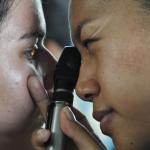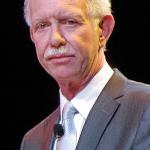I am not a big fan of electronic health records (EHRs), at least as they are presently designed. They are more billing platforms than clinical data repositories, easily accessible to clinicians.
EHR
Many factors contribute to the burnout of practicing physicians, which has been accelerated by the stress of the COVID-19 pandemic.
Before moving on, we have to give real credit to the authors of this study which, spoiler alert, shows no benefit to a clinical decision support tool.
Sepsis remains one of the most costly and deadly of medical conditions. Sepsis is not a disease per se, but a syndrome, a collection of signs and symptoms, that indicated the presence of an overwhelming infection.
A new study channels Frederick Taylor, father of the “scientific management” of the workforce, bringing a stopwatch into the hospital to report on how physicians, in this case, first-year internal medicine residents, spend their day.
“We do not yet know what challenges the pilots faced or what they were able to do, but everyone who is entrusted with the lives of passengers and crew by being in a pilot seat of an airliner must be armed with the knowledge, sk
The results of the biennial 2018 Survey of America’s Physicians, intended to “take the pulse” of doctors in the U.S., were recently









